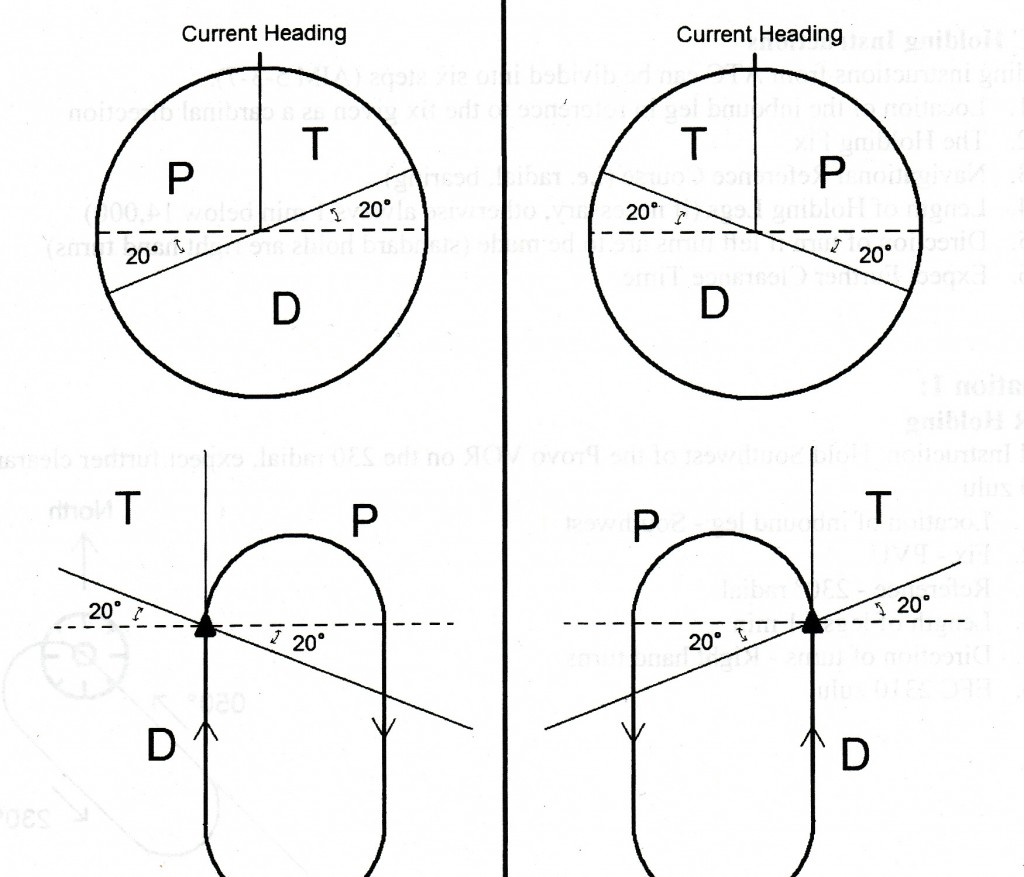Understand the purpose of a hold, all the entry procedures, how to fly the hold using the magic number, and how to fly a DME arc.
Hold on South-West 5 miles on the 285° radial of Fairfield, left turns. Current heading 070°. Go!
Know how to fly it, and you will stay safe and reduce stress.
Definitions:
Magic Number: a reference number (degree heading) used to easily determine hold entry and orientation (it is your outbound heading for the hold).
DME arcs: flying a fixed distance around a navaid
Purpose of a hold: air traffic control (due to congestion, unplanned conditions, and extenuating circumstances)
Types of holds: published (on a chart), unpublished (from a fix, VOR or DME from a VOR), standard turns, non-standard turns.
Entry procedures—draw a hold and split it with lines 20° off the perpendicular of the inbound course
Magic Number: a reference number (degree heading) used to easily determine hold entry and orientation (it is your outbound heading for the hold).
How to determine the magic number: always the cardinal direction given in the hold instructions. If the radial is different than the given cardinal direction, then the magic number is the reciprocal of the radial given.
5Ts
Turn
Direct: turn in the direction of the hold to the magic number
Parallel: turn opposite the direction of the hold to the magic number
Teardrop: turn 30° to the top of the magic number on the heading indicator
Time for 1 minute at wings level
Twist tail or bottom to magic number
Throttle as needed
Talk to ATC, time and altitude reaching fix
Turn after 1 minute
Direct: in the direction of the hold to intercept the inbound course
Parallel: in the opposite direction of the hold to intercept the inbound course
Teardrop: in the direction of the hold to intercept the inbound course
Parallel: opposite direction, opposite direction
Teardrop: 30° to the top, track inbound (never cross over the magic number to 30° from top)
Flying a hold with HIS or G1000
- Identify Magic number.
- Heading bug to magic number
- Identify ENTRY, based off Magic Number (HDG bug) and current heading.
- Determine current wind correction and mentally notate current correction inbound to the fix (5° North, or 15° East of heading)
- Turn to the magic number (or 30° from the magic number without crossing it) with noted wind correction, OR for Direct entry, begin hold circuit
- Twist Tail to the magic number & after 1 minute outbound, track inbound to fix, then begin circuit upon crossing the fix.
DME arcs: flying a fixed distance around a navaid
If the distance from the navaid gets too big, turn toward the navaid slightly
If the distance from the navaid gets too small, turn slightly away from the navaid
Conclusion: Understanding how to fly procedures will reduce stress and keep you safe.